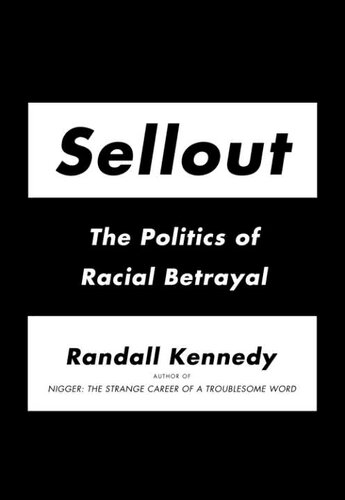
Sellout
The Politics of Racial Betrayal
کتاب های مرتبط
- اطلاعات
- نقد و بررسی
- دیدگاه کاربران
نقد و بررسی

November 12, 2007
Accusations of “selling out”—of betraying or neglecting the interests of blacks to curry favor with whites—are among the most damaging that African-Americans level at each other, according to Harvard law professor Kennedy. Called a sellout himself after his book Nigger: The Strange Career of a Troublesome Word
appeared, Kennedy here explores the charge’s potency. He recounts the centuries-long history of sellout rhetoric—sometimes rooted in real betrayals by blacks who echoed white supremacist ideology or informed on slave rebellions or civil rights organizations—and examines its role both in uniting the black community against racism and in stifling debate within the community. A long chapter analyzes conservative Supreme Court Justice Clarence Thomas, whom Kennedy acquits of sellout charges, and a fascinating discussion of racial categories and “White Negroes”—blacks who pass as white—shows how murky the concept of racial loyalty is. Kennedy finds sellout rhetoric to be overblown—often aimed at blacks guilty only of success—but won’t entirely repudiate it. African-Americans should “be subject to having citizenship in Black America revoked” if they repudiate “even a minimal communal allegiance” (although Kennedy is hard-pressed to think of plausible instances where this might apply). His is a lively, thoughtful, provocative commentary on a centerpiece of black identity politics.

November 1, 2007
In the black community, "selling out" refers to those who knowingly or carelessly act against the interests of their own people. In this work, Kennedy ("Interracial Intimacies") examines the meaning of that expression while considering how and why luminaries like Condoleezza Rice, Colin Powell, and Clarence Thomas have been branded for betraying their race.
Copyright 2007 Library Journal, LLC Used with permission.

January 1, 2008
Having had his own race loyalty attacked on occasion, Kennedy, a black Harvard law professor, examines the controversial topic of racial sellouts. He begins by tracing the historic roots of the concept of selling, recalling instances of slaves who traded information for personal gain and black leaders who may have aided government investigations of Marcus Garvey. He continues through more contemporary times, recalling street agents who functioned as ghetto listening posts during the tumultuous civil rights era, suggesting a complex web of assessing the appropriate application of the concept of selling out. Kennedy devotes separate chapters to Clarence Thomas and the phenomenon of passing for white as they relate to notions of racial disloyalty. Throughout the book, Kennedy argues for a more objective assessment of conservative blacks rather than the quick pronouncement that they are sellouts. It is not until the epilogue that Kennedy touches on his own personal experiences, though he continues to urge more reserve and reflective analysis when blacks criticize one another. An interesting look at the complexities of race and racial loyalty.(Reprinted with permission of Booklist, copyright 2008, American Library Association.)

























دیدگاه کاربران